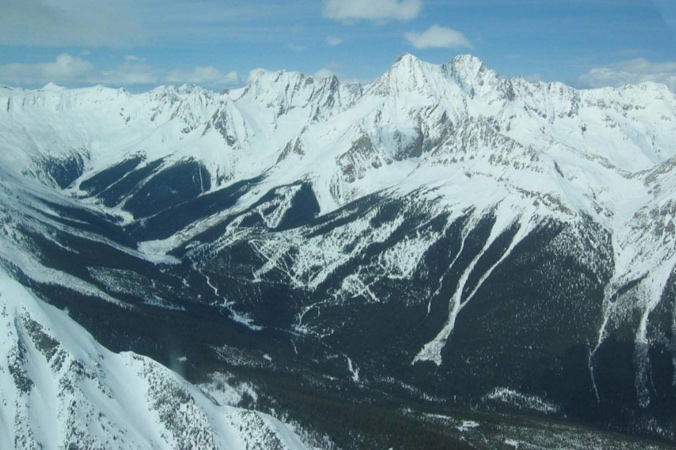
Site of the proposed Jumbo Glacier Resort. [Photo] Courtesy The Columbia Valley Pioneer
A 2015 ruling by Canadian Minister Mary Polak claimed that the developers hadn’t progressed with their building plans in the proposed time set by the Environmental Impact Statement Certificate. In a conversation with Backcountry Magazine that same year, Polak explained the certificate process, stating, “Every environmental assessment certificate has a deadline by which the project must be substantially started in the reasonable opinion of the minister,” and continued, “While it is clear that some construction has started, I was not convinced that the physical activity undertaken as of October 12, 2014 meets the threshold of a substantially started project.”
But in Monday’s hearing, scheduled for three days, a judge will assess the argument made by the developers that there were roadblocks both environmental and political that made meeting the deadline for construction impossible.
As CBC explains, the project’s lawyer, Greg Tucker, will argue that Polak’s friendship with a key member of the Ktunaxa Nation—an outspoken stakeholder group against the development of the Jumbo Wilderness—in addition to permitting struggles and opposition from various environmental groups were the real reasons why the deadline was missed.
In attendance at the court hearing this week is the environmental advocacy organization Wildsight, based in the Canadian Rockies, who is fighting against the re-issuing of the certificate and arguing that the original decision made by Minister Polak was sound.
Similarly, an attempt at outreach by Glacier Resorts Ltd. failed to inspire compromise from the Ktunaxa Nation. Glacier Resorts Ltd. offered to host two information session about the proposed development, but the request for dialogue has not been well received. In March, the local Invermere, B.C. newspaper, The Columbia Valley Pioneer, reported that Ktunaxa Nation Council released the following statement in reply to Glacier Resorts Ltd.’s appeal.
“The Ktunaxa Nation Council is not engaged in or considering any type of negotiations with Jumbo Glacier Resorts Limited on an Impact Management Benefits Agreement in relation to the building of a ski resort in Qat’muk,” and continues “The Ktunaxa Nation Council, which is governed by an Executive Council comprised of elected leadership from the four Ktunaxa communities in Canada, will never waiver in its steadfast pledge to keep Qat’muk free from permanent development.”
In the next few days, the B.C. Supreme Court in Vancouver will make the decision about whether or not they think Glacier Resorts Ltd. has sufficient grounds to open the Environmental Impact Statement Certificate once again, and organizations like Wildsight and The Ktunaxa Nation Council will have to strategize about future tactics for protecting the land in the eventuality that the ruling is overturned.










Related posts: